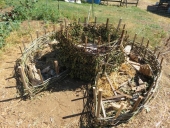
 1
1




![Filename: FCVNF1LIWCFF38G.LARGE.jpg
Description: Plastic Block [Thumbnail for FCVNF1LIWCFF38G.LARGE.jpg]](/t/98456/a/69129/FCVNF1LIWCFF38G.LARGE.jpg)
![Filename: slofn-pre08.jpg
Description: Glass and Concrete [Thumbnail for slofn-pre08.jpg]](/t/98456/a/69130/slofn-pre08.jpg)
 3
3




Idle dreamer




 1
1
















 3
3




 1
1




A human being should be able to change a diaper, plan an invasion, butcher a hog, conn a ship, design a building, write a sonnet, balance accounts, build a wall, set a bone, comfort the dying, take orders, give orders, cooperate, act alone, solve equations, analyze a new problem, pitch manure, program a computer, cook a tasty meal, fight efficiently, die gallantly. Specialization is for insects.
-Robert A. Heinlein
 3
3




Casie Becker wrote:Is there any art supply or artist studio in your area that rents kiln time? It wouldn't be done in your house, but you could assemble your recycled glass into a mosaic and then melt it together into a solid glass surface
 1
1




Growing on my small acre in SW USA; Fruit/Nut trees w/ annuals, Chickens, lamb, pigs; rabbits and in-laws onto property soon.
Long term goal - chairmaker, luthier, and stay-at-home farm dad. Check out my music! https://www.youtube.com/@Dustyandtheroadrunners








Casie Becker wrote:Thank you Charli. I didn't know about that concern. What I usually see is individual items melted down. Is making glass tiles to mortar together any better?












Invasive plants are Earth's way of insisting we notice her medicines. Stephen Herrod Buhner
Everyone learns what works by learning what doesn't work. Stephen Herrod Buhner








A human being should be able to change a diaper, plan an invasion, butcher a hog, conn a ship, design a building, write a sonnet, balance accounts, build a wall, set a bone, comfort the dying, take orders, give orders, cooperate, act alone, solve equations, analyze a new problem, pitch manure, program a computer, cook a tasty meal, fight efficiently, die gallantly. Specialization is for insects.
-Robert A. Heinlein

|
My first bit of advice is that if you are going to be a mime, you shouldn't talk. Even the tiny ad is nodding:
The new gardening playing cards kickstarter is now live!
https://www.kickstarter.com/projects/paulwheaton/garden-cards
|




